Fritextsökning
Artiklar per år
Innehållstyper
-
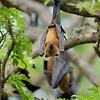
Nytt coronavirus upptäckt hos fladdermöss – tog sig förbi vaccin
Ett nytt coronavirus i levande fladdermöss har upptäckts av forskare i USA. Enligt forskarna är viruset resistent mot befintliga covidvaccin.
-
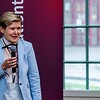
FOKUS Patient turns international
FOKUS Patient is arranging conferences over 3 days in October, and this year, the focus will be on international collaborations.
-

Bought a tablet factory – and built his own empire
In 1995, Thomas Eldered was CEO of one of Pharmacia’s factories in the Stockholm area when the Swedish pharmaceutical giant, after a takeover, decided to move its production abroad. 34-year-old Thomas was facing an imminent risk of losing his job. However, instead, it actually turned out to be the starting point for one of the biggest success stories in Swedish life science.
-
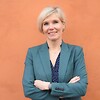
Marie Gårdmark: Potential step change – EU regulators get to play with data
A new pilot from EMA is starting in September to assess wether the analysis of 'raw data' by regulatory authorities improves the evaluation of marketing approval for new medicines. Marie Grådmark writes in a column that she is looking forward to the outcome of the pilot to hopefully then understand if “in house” analyses actually will add value.
-

Hon tar över som vd på Sweden Bio
Sweden Bio har utnämnt Frida Lawenius till ny tillförordnad vd. Hon efterträder Helena Strigård som lämnar branschorganisationen.
-

Life Science-podden: The perfect moment for an IPO
When is the right time to go for an IPO? What strategy is recommended in today´s rather uncertain business climate when it comes to taking your life science company public?
-

Swedish-Danish meeting at Medicon Village: “One of the most important life science congresses”
For the eleventh year, The Future of Swedish and Danish Life Science was held on Wednesday, and the event continues to function as a connecting link between the life science sectors of both countries. This year’s event attracted nearly 450 visitors.
-

Thomas Eldered köpte en tablettfabrik och skapade ett eget imperium
Det är 1995 och Thomas Eldered är chef för en av Pharmacias fabriker i Stockholmsområdet då den svenska läkemedelsjätten efter ett uppköp beslutar att tillverkningen ska flyttas utomlands. Risken är överhängande för att den 34-årige Thomas snart står utan jobb. Men istället blir det startskottet för en av de största framgångssagorna inom svensk life science.
-

Anders Blanck about his 17 years at Lif: “The industry is enjoying greater public trust now"
The announcement came as a surprise to those around him, but according to the protagonist himself, the timing was excellent. Anders Blanck is now leaving Lif – a decision that has been growing for some time. “I have been pretty much married to my mission. However, I will turn 56 this autumn, and if I’m going to do something else in my professional life, now is the time,” he says.
-
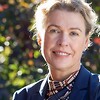
Anna Törner: Kalashnikovs in a new guise
Thanks to resisting European regulatory authorities, Europe has been spared the opioid epidemic. In the 1960s, the situation was the opposite as the American pharmaceutical authority, the Food and Drug Administration (FDA), refused to approve thalidomide (Neurosedyn), writes Anna Törner in a column.
-

Lucy Robertshaw: Did you know Stockholm wants to be in top 5 in the world for Life Sciences?
Karolinska Institutet Solna Campus has certainly become the next “Kendall Square”, writes Lucy Robertshaw in a column.
-

Stort engagemang på möte om medicinteknik: "Vi vet att lösningarna finns"
Hur ska alla innovativa medicintekniska lösningar inom diagnostik och behandling kunna nå patienten – utan att snubbla på alla juridiska, tekniska och formella hinder på vägen? Det var ämnet för ett välbesökt event i Göteborg på onsdagen.
-

Sweden is heavily criticised for not ordering Covid vaccine
Valneva and the EU Commission have entered into an agreement for 1.25 million doses of the company’s Covid vaccine, but Sweden has not placed an order.
-

Amorphous materials take centre stage when Orexo develops new formulations
Swift resolution but with maintained stability. Orexo’s new drug delivery platform tackles the problem of amorphous materials. “Our technology has the positive properties of the material, and it also cracks some of the problems,” says the company’s
-
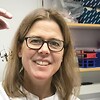
Gel av spindeltrådsprotein utvecklas för biomedicinsk användning
Spindeltrådens märkliga egenskaper kommer till användning när svenska forskare undersöker nya, potentiella metoder för bland annat regenerativ medicin och läkemedelsformulering.
-

Brottsutredning mot Alzheimerbolag – misstänks ha förfalskat data
En brottsutredning har inletts mot det amerikanska biotechföretaget Cassava Sciences efter misstankar om att bolaget manipulerat forskningsresultat kring sin läkemedelskandidat mot Alzheimers sjukdom.
-

BioVentureHub CEO: “Companies with a high degree of interaction achieve greater success”
For the first time since its inception, AstraZeneca’s BioVentureHub can now recruit new companies, as some of its tenants have grown significantly and are leaving the hub. This is the message from the biohub’s CEO Magnus Björsne in an interview, in which he also highlights a study that points out that companies with a high degree of interaction with other companies achieve greater success.
-

Tablet treatment for hair loss approved in the USA
The US Drug Administration has given a thumbs up for the first tablet treatment for spotty hair loss.
-

Study: Our behaviour may have been guided by wishful thinking during the pandemic
A new study suggests that we systematically underestimate health risks if and when it suits us. This was especially true during the pandemic, as our risk assessments may have been guided by wishful thinking rather than a rational perception of the risks.
-
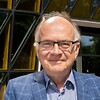
Göran Stiernstedt: “We are the world’s worst at continuity”
Failed investments in primary care, an unreasonable system with online doctors and a public failure at coordinating the healthcare IT system. Göran Stiernstedt does not mind his language when describing the shortcomings of today’s healthcare system
-
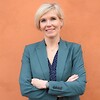
Marie Gårdmark: New incentives for orphan products on its way
"Let’s hope that the learnings from development of new therapies for rare diseases will spill over to more common conditions, orphan products paving the wave for drug development in a broader context", writes Marie Gårdmark in a column.
-

A growing industry in Denmark: “One new life science company a week”
The life science sector in eastern Denmark continues to grow in the number of employees, as well as the number of companies. An emerging problem is the shortage of labour, a new report reveals.
-
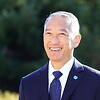
IVI’s Director General on establishing in Sweden: Will need up to 40 employees
The International Vaccine Institute, IVI, hopes to have its first staff on-site in Stockholm within a couple of months, says the institute’s Director General Jerome Kim in an interview with Life Science Sweden.
-

Hon blir ny generaldirektör för Vetenskapsrådet
Katarina Bjelke har utsetts till ny generaldirektör och chef för Vetenskapsrådet. Hon tillträder sin nya tjänst den 15 september.